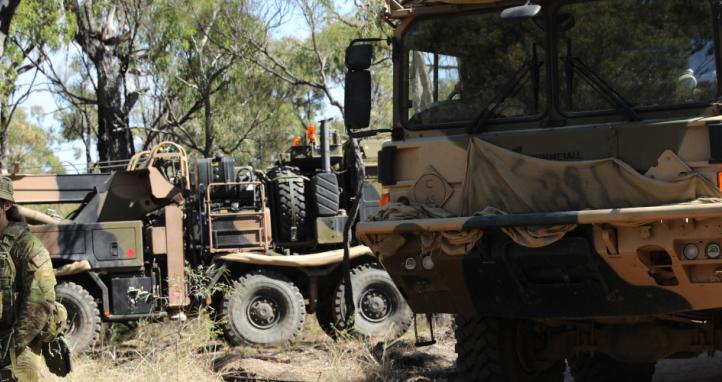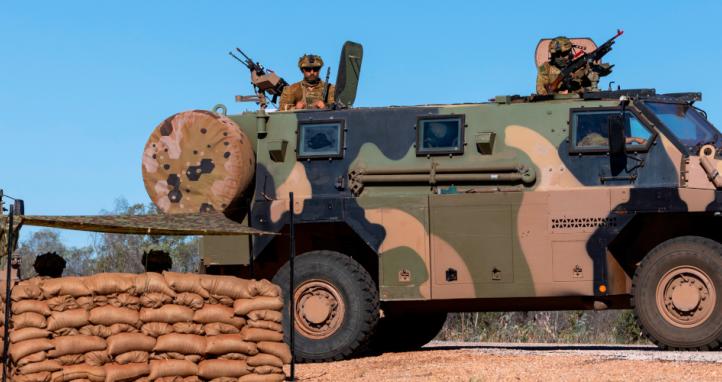Introduction
On reflection, undertaking service in the Army Reserve has been one of the best opportunities that I wish I had taken up earlier in my professional life. It has given me great experiences and provided me with transferable skills to my civilian career in terms of leadership, teamwork, and networking with people from other industries.
In this article, I aim to discuss how the Reserve can provide a competitive edge to young people moving into the job market due to the opportunities that it provides in training and day-to-day service. I will discuss these items by looking back on my own experiences going through the Army Reserve Officer Training Continuum (‘the course’) and the key lessons I learnt that were useful in my civilian career.
Importance of the army reserve
To be successfully offered a graduate position or a full-time job after completing university/high school/TAFE can be a challenging and very competitive journey for young adults.
Even with a degree, being a young person in the job market can be tough.
The competition is evident by the level of youth unemployment in Australia which is currently at 9.4%, more than double the overall unemployment rate of 3.9%. This statistic alone highlights the difficulty that young people face when looking for work and this is not even taking into consideration the economic pressures post-pandemic.
In turn, young adults should think about what skills and/or experience that they could attain which would give them a competitive edge in the job market. The Army Reserve is one of those experiences.
Networking
The parade nights and courses that members attend are great networking opportunities. I have met individuals from all industries such as consulting, human resources, and construction, just to name a few. They enable serving members the ability to converse on a wealth of different subjects during and between lessons, and at the mess or soldiers’ clubs. From my experience, being able to expand my understanding on various matters from such a diverse workforce has assisted me immensely in my civilian career.
Additionally, the type of training and day-to-day work of the Army requires collaboration, and working in a team. In that scenario an individual naturally creates professional relationships that can assist in professional development or even attaining a job. These opportunities are highly beneficial for individuals looking to set up their career and transition from studies to workforce, or just to continue to improve their skills.
Professional development
The Reserve is a great environment for professional development. The working environment can vary from day to day and can include stressful situations such as field training.
The practical experiences of working in a team taught me the important elements to consider in forming and working in teams in any workplace. For example, during the course I was assessed in planning a mission and delivering orders to a platoon – a task whose elements of working and creating a team are transferable to any civilian job, as in most circumstances an employee would be required to work in some form of a team.
In any role, the Army develops leadership qualities such as taking on responsibility, leading by example, and making decisions under pressure. For example, the course exposed me to the leadership opportunity of planning field exercises and leading platoon on those exercises. These experiences developed important skills that are easily transferrable to any civilian job.
I was also fortunate to be exposed to excellent instructors that guided me through the important considerations of leadership which has enabled me to move into leadership positions in my civilian career with ease.
While these skills can potentially be learned through civilian employment, civilian employers don’t typically provide the level of leadership training that Army does. Thus, if a civilian employer is given an applicant with prior leadership experience through the Army Reserve, it can give confidence to employers of their skills and experience. In turn, an applicant with reserve experience moving into a leadership position with a civilian employer would likely not need as much assistance as an employee with no prior leadership experience.
Overall, Army provides a large array of opportunities for professional development, with each opportunity bringing ‘lessons learnt’ that they are (in my experience) always transferable to a civilian career.
Flexibility
The Army Reserve often provides flexibility which allows individuals the time to continue to search for their graduate opportunity in their civilian career or consider what career path they would like to take in the future. From my experience, flexibility in a job was important in order to have enough time to focus on completing my university studies, and now in meeting the demands of full-time employment.
Giving back to the community
Most importantly, the Reserve provides individuals the ability to serve and help the community. It has never more been more prevalent than today, as the Reserve has been called out several times in the recent years for flood relief, COVID-19 pandemic support, and providing support during bushfires.
Studies
A 2012 study found that civilian employers reported a substantial number of positive attributes from individuals with army experience, such as an increase in leadership, teamwork, maturity and confidence. As noted by the study, the Army provides strong foundations for an individual to succeed in the civilian or army workplace.
To put the benefits of Army Reserve experience another way, a job-seeking website published an article highlighting the key character traits that a civilian employer looks for in candidates, such as:
|
|
A good portion of the traits highlighted in this list can be developed through the experiences and opportunities a person gains through the Army Reserve. These traits include discipline, flexibility, resilience, persistence, and integrity. Traits that are developed from initial training to ongoing experiences during field exercises or in the barracks.
Conclusion
The experiences that I have had in the Army Reserve have put me in good stead during my civilian career and continue to provide a competitive edge for young applicants.
The Army Reserve should be a consideration for young adults, as it provides:
- an opportunity to develop solid foundations that are needed for success in any professional civilian career
- flexibility, which is highly beneficial if they are a student, and most importantly,
- the ability to serve their community.










It also goes the other way. With reservists bringing a wealth of civilian knowledge and contacts, with reserves being more often than not members of the local community and better able to develop the trust of the community beyond that of the full-time branches of the ADF.
Defence would be remiss to not leverage this the same way employers would be remiss to leverage the qualities imparted on reservists and ex-serving members.